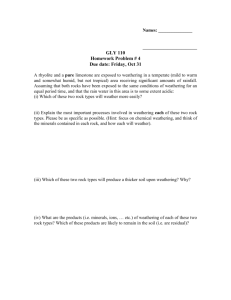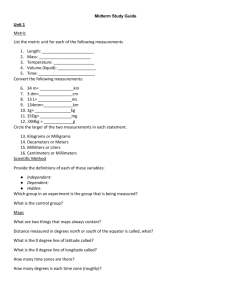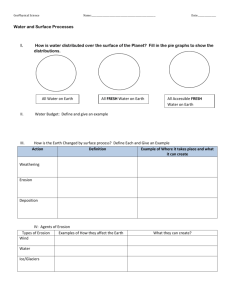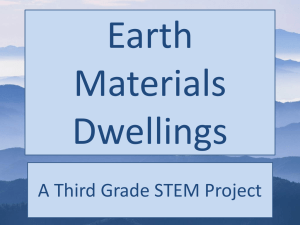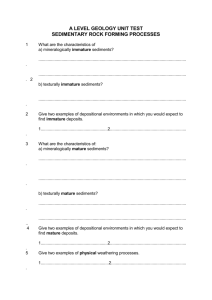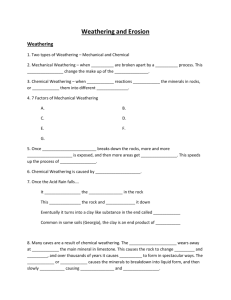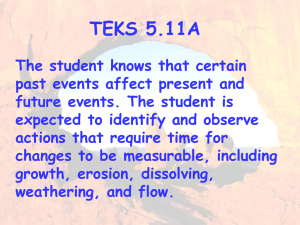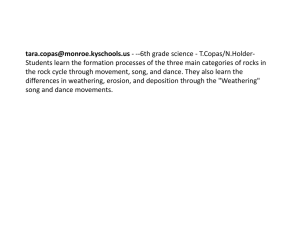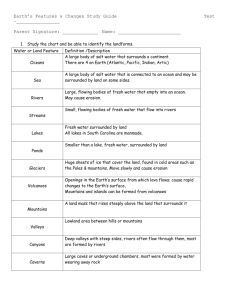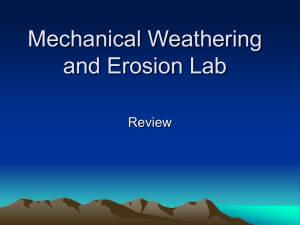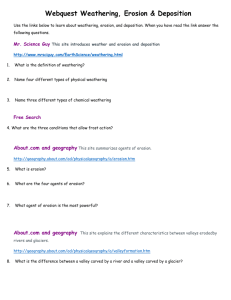Chunky Weathering and Erosion
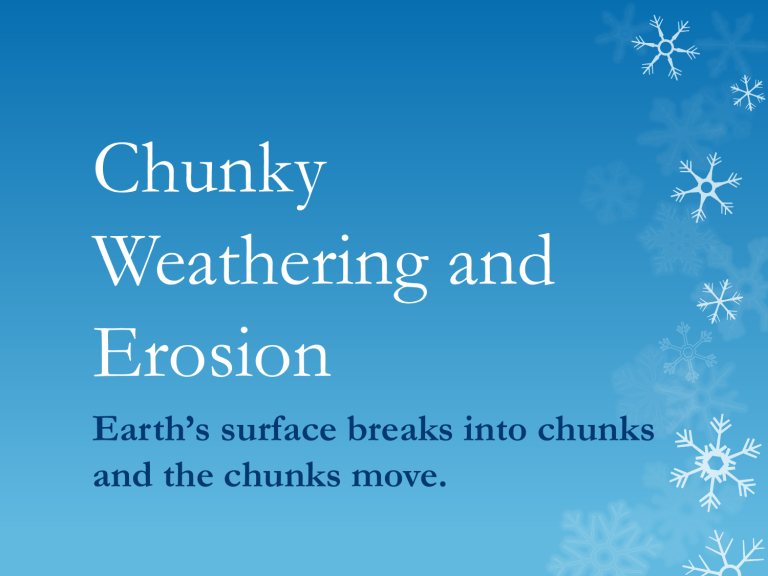
Chunky
Weathering and
Erosion
Earth’s surface breaks into chunks and the chunks move.
The breakdown of rocks at or near Earth’s surface is called?
weathering
What are the two types of weathering?
Physical and chemical
Which type of weathering actually changes a rock’s composition?
chemical
What is it called when ice expands in a crack in a rock?
Ice wedging or frost action
Abrasion is a form of which type of weathering?
physical
When limestone bedrock dissolves due to chemical weathering it can form?
Sinkholes or caverns
An example of biological weathering would be . . .
Plant root in rock
The weathering of bedrock ultimately forms this important material.
soil
The driving force of most erosion is?
gravity
Which of the following are considered mass movement?
soil creep landslide rock fall
They’re all mass movement
V-shaped valleys are carved by?
Rivers and streams
True or false – rivers produce sharp edged sediments
False – they produce rounded sediments
Draw the cross section from x to y
At what letters will erosion take place?
B & D
The area of land drained by a stream is called a?
watershed
What type of erosion created this formation?
wind
Glaciers carve what shape valleys?
U
What arrangement of sediments are left by glaciers?
Unsorted
What other evidence of glaciation might be found in a
U-shaped valley?
Striations or erratics
This glacial formation is called a?
drumlin
This long narrow island is formed by?
Longshore current or wave action
Which erosive force formed these lakes?
Glaciers
Where on Earth is this process the most dominant type of erosion?
Beaches and deserts
Which erosive force moved this boulder to its present location?
Glaciers
A decrease in the velocity of a stream will most likely cause an increase in _______________.
Deposition
The Mohawk River runs into the
Hudson River. Therefore, the
Mohawk would be considered part of the Hudson’s ______________.
Watershed
Landscapes will undergo the most chemical weathering if the climate is _______ and _______.
Warm and wet
Which of the following sediments will be transported by a glacier?
A) Boulders B) cobbles C) pebbles
D) sand E) silt F) clay
All of them
What erosive force formed this valley?
A river

